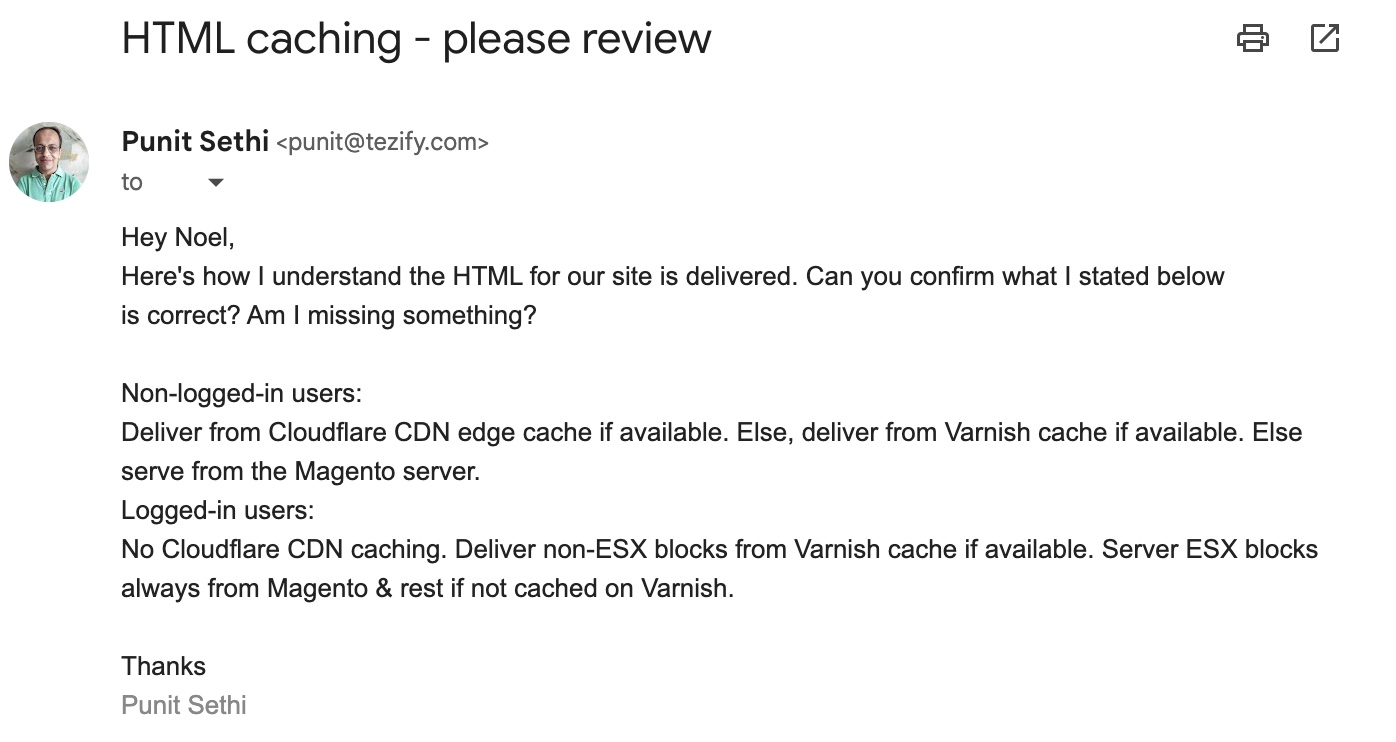
I have been a solopreneur for 5+ years. I position myself as an “expert” on website speed, scalability & architecture and provide related tech services to high-traffic eComm and B2C websites.
Prior to this, I was a salaried techie for a 10+ years. At my last salaried job, I mostly resisted asking questions. I also didn’t think deeply about it.
So, when I started my own thing, there was a lot I needed to learn:
At this point, my primary problem was this:
Positioning myself as an “expert”, I was worried that asking questions would “expose me”.
In the below sections, I have detailed a few things that I believe helped me overcome this anxiety and get comfortable at asking anything.
Operating independently in a niche as a subject-matter expert, if I chose to not ask questions, I had very limited chances of survival:
With no escape route, I was pushed to ask the questions to learn things even if it made me feel vulnerable. Over the years, I realized that having my back against the wall was imperative for me to go out and ask the questions I needed to ask.
Based on this experience, whenever I’m asked for advice by someone about improving at their jobs - I often request them to commit themselves to tasks and situations that they haven’t encountered in the past (have their back against the wall). And then, combine this with asking the questions to aptly execute the problem at hand.
“The time I spend getting good at 1 thing takes away the time I could spend improving upon 99 other things. There’s always finite time at hand, so this is bound to happen time and again. This has got nothing to do with my competence, age or experience.”.
While the above sounds obvious, it never sunk into me enough to be comfortable telling others that I did not know the “99 other things”. To overcome this, I began phrasing my learning-seeking conversations in the following manner:
“Hey - I have been solving performance issues for React websites, but I have no idea how Vue.js works.”
Or
“I have been solving frontend scalability issues, but I have no knowledge how to tune a database query.”
Once I got comfortable telling what I didn’t know in this way, I began stating so at the outset of a conversation. Doing so at the start of a conversation relieved me from a back-of-the-mind fear of being judged or exposed. This helped me truly focus on the learnings from the conversation.
Over the years, I have found myself using some version of the above statement even when I’m trying to learn from a conversation about non-work related topics like insurance, real-estate, pet care, etc.
When I was starting to ask questions, I spent a lot of time identifying the folks with whom I could have a 1-on-1 conversation to learn things. These could be past colleagues, connections of connections or people I followed on the social media. The conversations could be in-person, phone calls, email-exchanges or DMs depending on whom I was reaching out to.
Wanting to nurture my courage, I avoided asking questions to someone who I thought may respond judgmentally. I also avoided asking questions in larger groups. Instead, I preferred to wait to get an opportunity to ask my questions 1-on-1. I’m not sure if this was always a good idea but I did not want to lose on whatever little courage I was gradually building-up.
As I grew in courage, I started to be less choosy about who I was reaching out to learn from. Also, I gradually started to feel comfortable asking questions in a few non 1-on-1 setups (conference QnA sessions and slack channels).
For some of the topics that I sought to understand better, I spent some time online to get a rough grasp of things before hand (via my own analysis or google search). During the conversations, I would then state my understanding of things and validate if my understanding is correct.

I also hoped this showed the other person the effort I was putting in to understand things and convinced them to spend some of their (limited) time and energy to explain things to me.
Most of my initial conversations around things I was trying to learn went great. I found that the folks whom I reached out seemed more interested in putting their point across rather than judging me.
Once I had around half a dozen such conversations across topics, my anxiety about “getting exposed” reduced. I also felt that I had a template of whom, when, what and how to ask questions about the things I was seeking to learn.
As I grew in confidence, I started to feel confident enough to be able to swallow an odd judgmental reaction as someone’s individual opinion. As a result, I was able to push my boundaries and ask even more “stupid looking” questions.
Over the years, I have realized that learning by asking questions leads one to an upward spiral of understanding things better, executing the stuff better and then asking even more questions and so on.
Having realized the opportunity cost of not asking questions, I have grown thick-skinned enough to ask questions on popular slack channels or subreddits even if some of the responses there could be harsh.
Got a half-baked idea that you want some feedback on?
— Punit Sethi (@geekybiz) November 7, 2022
Post it on reddit:
- as a question : 2 responses.
- as your true-blue opinion* : 100 responses.
*only if you can gulp down some harsh-toned responses.
(speaking from experience 🙂)
I also feel a sense of joy when someone chooses to reach out to me for a candid conversation to learn about something. I realize the mountains of courage they may have climbed before doing so and try to pay it forward whenever I can.